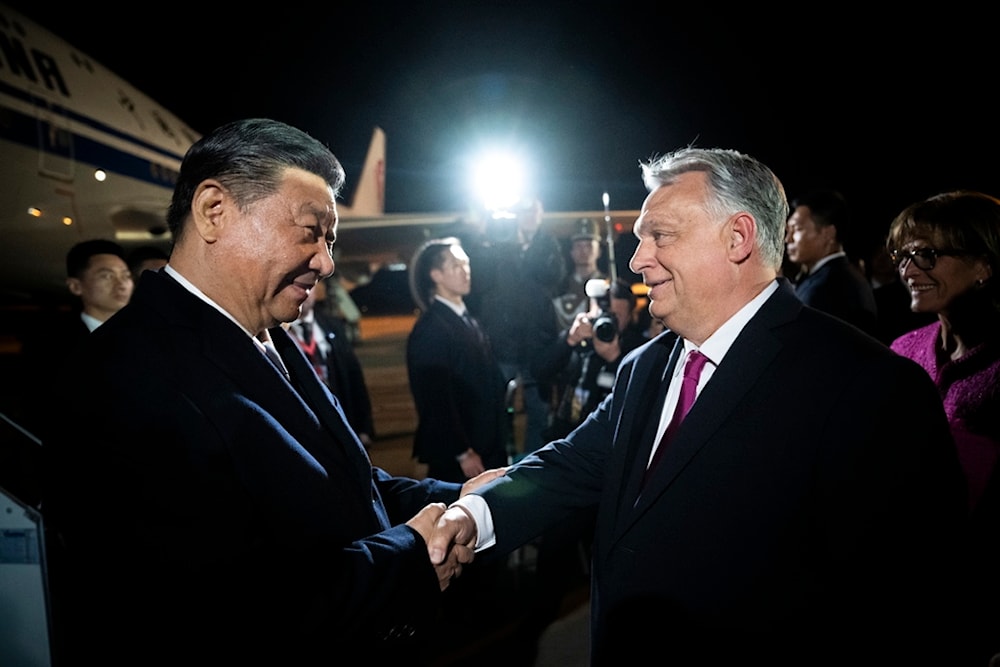China's Xi Jinping arrives in Hungary, concludes last leg of EU tour
China and Hungary are expected to sign 16 agreements of cooperation across different fields.
-

Chinese President Xi Jinping, left, shakes hands with Hungarian Prime Minister Viktor Orban as he arrives for a state visit at the Liszt Ferenc International Airport in Budapest, Hungary, Wednesday, May 8, 2024. (AP)
Chinese President Xi Jinping is visiting Hungary, his country's closest ally in the European Union, on Thursday, as part of his first European tour in five years.
This visit coincides with efforts from China and the EU to prevent a trade conflict, amid escalating tensions fueled by EU anti-subsidy investigations and what the EU perceives as concerns over espionage, Ukraine, and Taiwan.
The Chinese president first arrived in Hungary on Wednesday night following the conclusion of his diplomatic visit to Serbia, and attended an official dinner with Hungarian Prime Minister Viktor Orban. On Thursday, Hungarian President Tamas Sulyok warmly welcomed his Chinese counterpart in the presidential palace of Budapest.
Ahead of his arrival, Xi praised China and Hungary's long-standing friendship in an op-ed published by Hungary's Magyar Nemzet daily, saying both nations jointly challenged international difficulties and power politics.
"Our bilateral relationship is at its best in history, and has embarked on a golden voyage... On the new journey of the new era, China looks forward to working closely with our Hungarian friends," he said.
The visit coincides with the 75-year mark of alliance and diplomatic relations tying China and Hungary together. Both countries are reportedly expected to sign over 16 agreements aimed at boosting cooperation in several domains, including rail and road infrastructure, nuclear energy, and the automotive industry.
Dive Deeper
Xi's itinerary began in Paris, where he met with French President Emmanuel Macron and European Commission President Ursula von der Leyen on Monday.
“The Chinese leadership is pretty clear about what they want,” says Abigaël Vasselier, the director of foreign relations at Merics, a German thinktank focused on China as quoted by The Guardian.
Vasselier further highlighted at the time that Xi's primary agenda would revolve around advocating against the EU's anti-subsidy investigations, with a specific emphasis on electric vehicles (EVs), and working to stabilize the bilateral relationship.
In September, European Commission President Ursula von der Leyen made remarks widely interpreted as directed at China, expressing concerns about global markets being saturated with inexpensive electric cars artificially subsidized by states.
The last face-to-face meeting between Macron, von der Leyen, and Xi occurred in April last year when the European leaders traveled to Beijing. Macron, accompanied by a sizable business delegation, secured 18 cooperation agreements between French and Chinese companies during that visit. His statement to reporters, suggesting that Europe should not blindly follow America's stance on the Taiwan issue, sparked controversy.

 3 Min Read
3 Min Read








